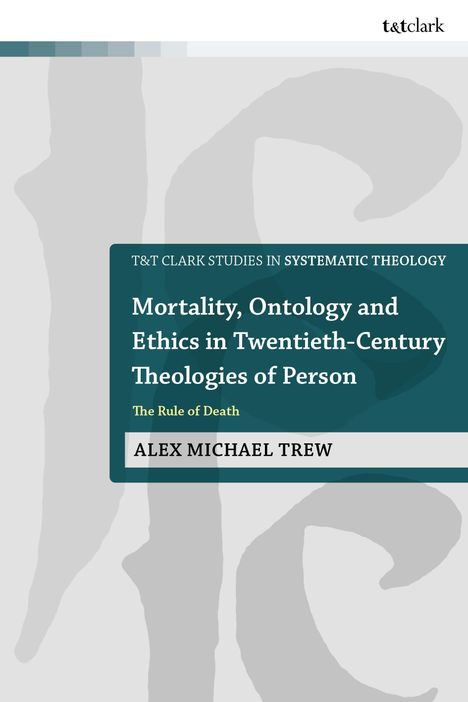Alex Michael Trew: Mortality, Ontology and Ethics in Twentieth-Century Theologies of Person, Gebunden
Mortality, Ontology and Ethics in Twentieth-Century Theologies of Person
- The Rule of Death
Sie können den Titel schon jetzt bestellen. Versand an Sie erfolgt gleich nach Verfügbarkeit.
- Herausgeber:
- Ian a McFarland, Ivor J Davidson, Philip G Ziegler, John Webster
- Verlag:
- Bloomsbury Academic, 05/2026
- Einband:
- Gebunden
- Sprache:
- Englisch
- ISBN-13:
- 9780567722591
- Artikelnummer:
- 12498427
- Umfang:
- 256 Seiten
- Gewicht:
- 503 g
- Maße:
- 234 x 156 mm
- Stärke:
- 28 mm
- Erscheinungstermin:
- 14.5.2026
- Hinweis
-
Achtung: Artikel ist nicht in deutscher Sprache!
Klappentext
This book considers what it means to die.
Trew achieves this through the prism of two significant twentieth century thinkers: Dietrich Bonhoeffer and Christos Yannaras. In doing so, he continues an esteemed tradition of works considering the theology and philosophy of death, including Karl Rahner's On the Theology of Death and Martin Heidegger's Being and Time . However, Trew is also breaking new ground: this is the first English language book to compare the late Christos Yannaras with major western theologians, making this an innovative and ecumenical work.
Different as they are, both Bonhoeffer and Yannaras are well-known for their robustly relational views of human existence. Trew elegantly guides us through a systematic unfolding of how they both believe that, in and through Christ and his church, human life stands newly formed and empowered before the radical individuation of death.
Bonhoeffer and Yannaras both see in the means for modern theological anthropology to address the asymmetrical togetherness of historical existence and divine transcendence. Trew highlights how this is crucial for a redescription of what individual death might mean in the context of the church as 'communion'. In doing so, he constructively recasts Heidegger's best insights about anticipating death with Bohoeffer and Yannaras.
Ultimately, Trew powerfully argues for the Christological conversion of human creaturely passivity into recapitulative activity wherein human beings, by their 'daily dying' take up death's power and transfigure it into new life. Death becomes entangled within a distinctively and irreducibly relational vision of the human being.


